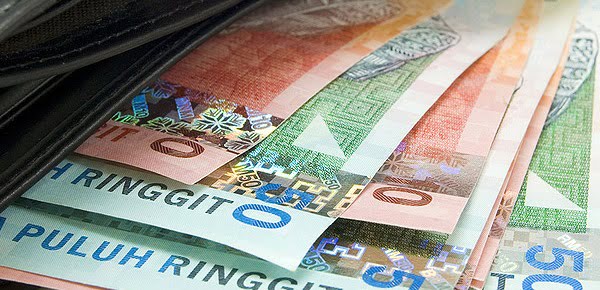Why The Weakening Ringgit Is Not All Gloom And Doom
Table of Contents
 The depreciation of our Ringgit may have caused the loss of confidence in foreign investors and tempting inflationary pressures. However, there can be some gains from this too.
The depreciation of our Ringgit may have caused the loss of confidence in foreign investors and tempting inflationary pressures. However, there can be some gains from this too.
Here are a few industries in our country that have benefited from the weakening Ringgit:
1. Manufacturing/Export-driven businesses
Cheaper currency means that our exports becomes cheaper and more attractive to the international market. Notably the US market where the favourable USD/MYR exchange rate can potentially lead to a steady increase in demand for Malaysian exports.
This is the perfect opportunity for Malaysian exporters to establish new long-term business deals for future exports.
For example, local glove manufacturer and exporter, Top Glove has recorded an upturn in profit before tax by 19.9% due to the sharp appreciation of US currency and the lower raw material prices.
The drop in certain raw materials in tandem with oil prices has led to a reduction in production cost as costs are Ringgit-denominated, while sales are in US Dollars. Both factors combined, allow manufacturers some buffer to absorb the rising cost in other areas such as labour and electricity costs.
Palm oil producers are also poised to gain from the weakening Ringgit, as palm oil becomes more attractive to price-sensitive buying countries like China and India.
2. Tourism
There will be a boost in our tourism industry as now holiday in Malaysia becomes much more affordable to overseas tourists. Overseas tourists with stronger currencies are able to spend more with their money in Malaysia, which in turn spill over to our small local businesses like food and beverages outlets and also manufacturers and shops of locally made products.
Domestic tourism is likely to increase because overseas vacations require a higher budget now. Holidays in Australia, or even Singapore becomes more expensive for Malaysians, hence, vacationing within the borders makes more sense now.
Medical tourism can benefit from the weakening Ringgit too. The Global Retirement Index ranked Malaysia as the third country in the world that provides the best and most affordable health care in the world. As the value of Ringgit drops, the price of medical treatments naturally becomes even more attractive to foreigners.
3. Retail
With more Malaysians staying within Malaysia, there will be a lower outflow of money from the country. Furthermore, as more foreigners visit Malaysia, they would inadvertently shop for local products and also souvenirs, especially when it’s a lot cheaper with their stronger currency.
This will result in out local retail industry, such as shopping malls, seeing an increase in their sales. With the ongoing year-end sales and pre-GST buying frenzy, retail business owners will definitely see a boost in their sales.
4. Education
The weak Ringgit currency has also made tertiary education in Malaysia more affordable to foreigners. Private and local universities, colleges and institutions will see this as a lucrative opportunity to attract more foreign students to study in Malaysia.
With the growth of the education industry, it will help our country loosen its dependency in oil exports and transits to become a value-added service provider and taking us a step closer towards achieving high income nation status.
5. Banks
As banks have many overseas operations, the strengthening of foreign currency against Ringgit provides translation gain (higher conversion rate back to Ringgit for a unit of foreign currency) as the banks repatriate the earnings back into Malaysia.
Foreign investments made by our local banks could also potentially see some gains. For example, having investment portfolios in other countries with weaker currencies against the US Dollar (thus their exports becomes more competitive and cheaper) can result in export surplus and yield higher profits for the banks.
Underwriters will see increase in premiums (fees) in the derivatives market as more firms will engage in their services to hedge their earnings from translation losses.
6. Online businesses
Online businesses that sell their products outside of Malaysia can also benefit from higher sales from outside of Malaysia. The weaker Ringgit will make their products more attractive to foreign customers.
For Malaysian freelancers and consultants who offer their services outside of Malaysia, they may see an increase in their earnings as they convert their foreign earnings to Ringgit. With competitive fees, more job and assignment opportunities can be created for local talent.
7. Foreign direct investments (various relevant industries)
According to Dato Sri’ Idris Jala, the chief executive officer of PEMANDU who spearheaded the Economic Transformation Programme (ETP), the weakening Ringgit could bring in more foreign investments into our economy as the cost of doing business becomes cheaper in Malaysia.
This will bring more money into our economy and creates more employment opportunities which will lead to a positive spill over to various industries.
As the saying goes, what comes up must go down; and the reversal is true too. Short-term fluctuations of our currency will not affect medium and long-term economic prospects in Malaysia. With an optimistic outlook for our country’s economy, a weakening currency can be beneficial to us too if we can find a way to turn this adversity into an opportunity.












